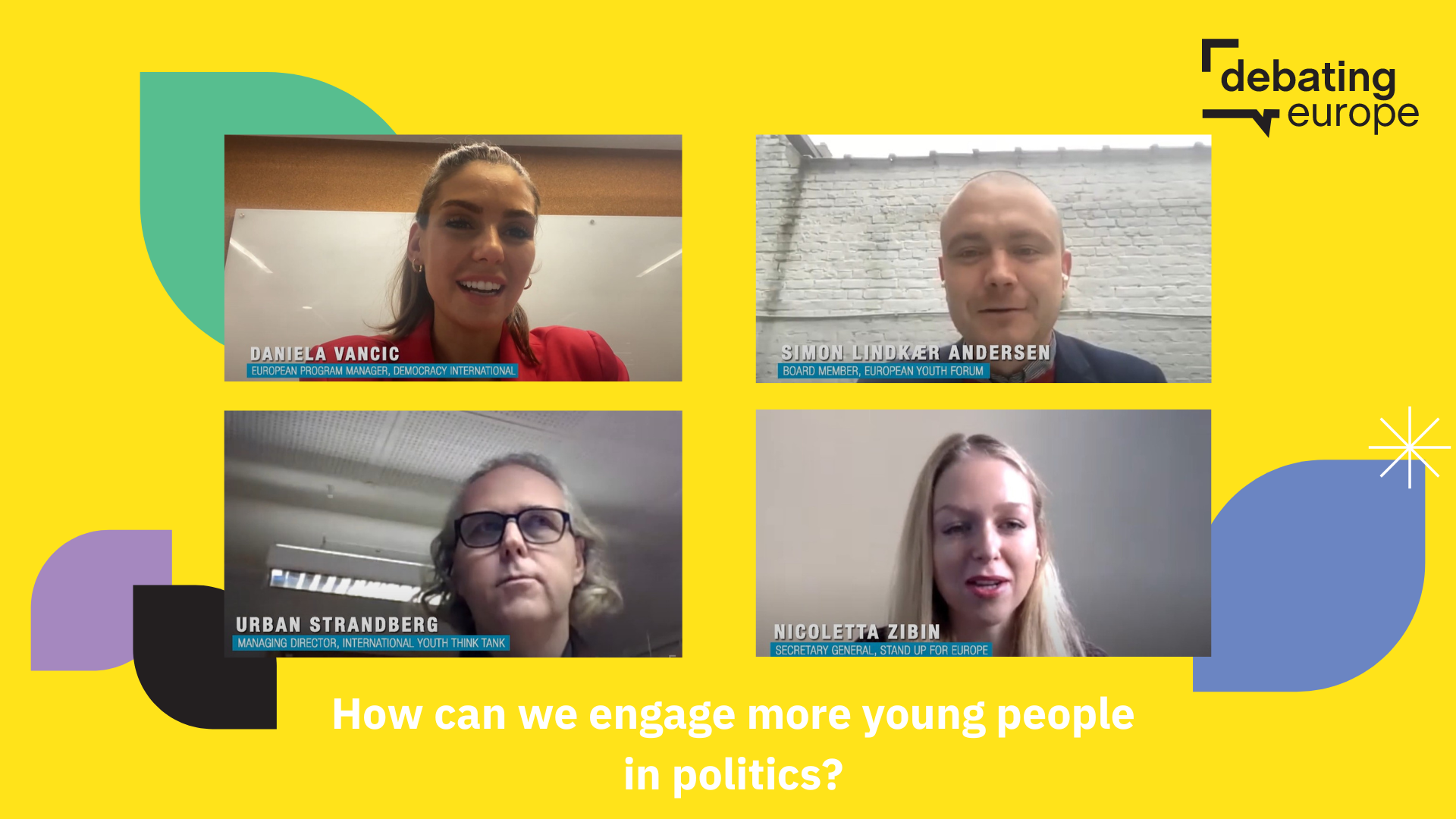Events
How can we engage more young people in politics?
Material
Download
It turns out that young people do care about politics. In the 2019 European Parliament elections, the jump in turnout was driven by young voters; the largest increases in participation came from the under 25 and 25-39 age groups. On the other hand, despite recording the biggest uptick, young people still had the lowest turnout among all age groups in the 2019 EU elections. How can we get more young people to vote and engage in electoral politics?
In order to discuss solutions with citizens, Debating Europe, in partnership with Fondazione Cariplo, organised a series of online focus groups with 40 young Europeans to think of ways to regenerate European democracy. The report summarising the output of our focus group discussions was published at Friends of Europe’s high-level State of Europe roundtable event in Brussels on Thursday 27 October.
You can read the report here.
Want to learn more about youth engagement with politics? Check out our infographic below (click for a bigger version):

What do our readers think? We took some of the comments and ideas on youth engagement in politics generated during our discussions (as well as some questions sent in to us by email) and put them to:
- Daniela Vancic, European Program Manager, Democracy International
- Nicoletta Zibin, Secretary General, Stand Up for Europe
- Simon Lindkær Andersen, Board Member, European Youth Forum
- Urban Strandberg, Managing Director, International Youth Think Tank
They responded to a question from Luca from Italy:
? “Considering Europe’s ageing population and low turnout among younger generations compared to older ones, it could be said that most democratic decisions are taken by older generations, or at least that representatives are voted by older constituencies. Do you think there should be more initiatives such as ‘This time I’m voting’ in order to boost younger voters’ turnout and political participation?”
We also had a question come in from Mariana from Portugal:
? “When we segment and label generations, we start noticing patterns regarding habits, interests, and how each group consumes information. This may cause generalizations like “older people tend to be more conservative” or “young people produce more waste with their ever-changing consuming habits”. How can our current leaders keep up with diverse backgrounds and expectations and also with potential conflicts of interest arising from people living different moments of their lives? And knowing that politicians tend to be older, how can we train and elect younger leaders, despite the strong lack of interest of younger generations in politics? How to promote discussions that are more relevant to people’s daily lives, especially young adults?”
Yordan from Bulgaria made a suggestion during one of our focus groups:
? “Maybe voting should be possible from an earlier age, 16 perhaps?“
Finally, Mariavittoria from Italy made the following comment during a different focus group:
? “My personal perspective is that, for a woman, and especially a young woman, it’s very hard to be listened to.”
How can we engage more young people in politics? Should there be more initiatives to boost youth political participation? How can we avoid generational conflict while giving young people a stronger voice? Should the voting age be lowered to 16 across Europe? Let us know your thoughts and comments in the form below and we’ll take them to policymakers and experts for their reactions!
Editorially independent content supported by: Fondazione Cariplo. See our FAQ for more details. Funded by the European Union. Views and opinions expressed are however those of the author(s) only and do not necessarily reflect those of the European Union or the European Commission. Neither the European Union nor the granting authority can be held responsible for them.![]()

